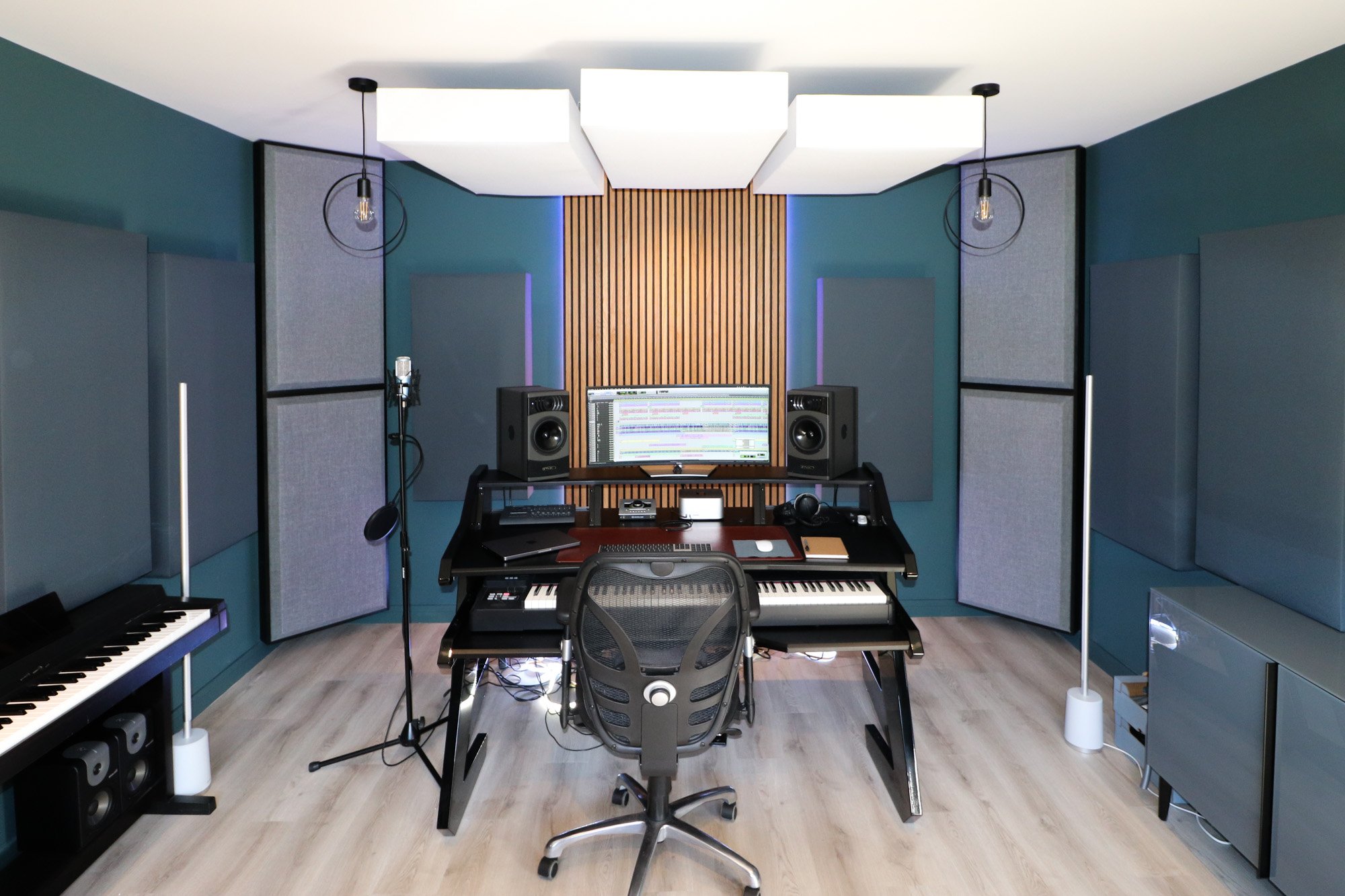Soundproofing vs. Acoustic Treatment in a Music Studio
If you're a musician, podcaster or recording artist, you know that a good quality studio is essential for creating high-quality recordings and productions. Soundproofing and acoustic treatment are two important factors that can help you achieve the best possible sound in your studio.
What is soundproofing?
Soundproofing is the process of reducing the amount of sound that enters or leaves a room. This can be done by adding mass to the walls, using soundproofing materials, or decoupling the walls, floor and roof structures. Soundproofing can help to reduce noise from outside the studio, as well as noise from within the studio itself.
Wall with acoustic insulation and isolation clip channel
What is acoustic treatment?
Acoustic treatment is the process of improving the sound quality in a room. This can be done by adding sound-absorbing materials, sound-diffusing materials, or both. Acoustic treatment can help to reduce reverberation, improve clarity, and create a more balanced sound in your studio. Typically, acoustic treatment products include bass traps, acoustic wall and ceiling panels, acoustic foam, isolation pads and diffuser panels.
Production studio with bass traps and acoustic wall and ceiling panels
The difference between soundproofing and acoustic treatment
Soundproofing and acoustic treatment are two different processes that have different goals. Soundproofing is primarily concerned with reducing noise levels, while acoustic treatment is primarily concerned with improving sound quality.
In a music studio, soundproofing is often the first step in creating a good-sounding environment. This is because noise from outside the studio can be very distracting and can make it difficult to record or mix music. Once the studio is soundproofed, acoustic treatment can be used to improve the sound quality. Depending on the size and layout of your studio, different acoustic treatment will be applied.
Which is more important?
Both soundproofing and acoustic treatment are important for creating a good-sounding music studio. However, the importance of each will vary depending on the specific needs of the studio. For instance, a drummer will likely be more concerned about soundproofing, whereas a music producer will likely care more about the acoustic treatment to ensure that their mixes are accurate.
Conclusion
Soundproofing and acoustic treatment are two important factors that can help you achieve the best possible sound in your music studio. By understanding the difference between these two processes, you can make sure you choose the right Sonic Box Studio for your requirements and determine the level of acoustic treatment you may wish to apply once your build is complete.
We work with consultants and designers to help you with all aspects of your build and can advise on both your soundproofing and acoustic treatment needs. With a little planning and effort, we can soundproof and acoustically treat your music studio to create a space that both looks and sounds great.
Sonic Box Pro - Guitar/Office Space



